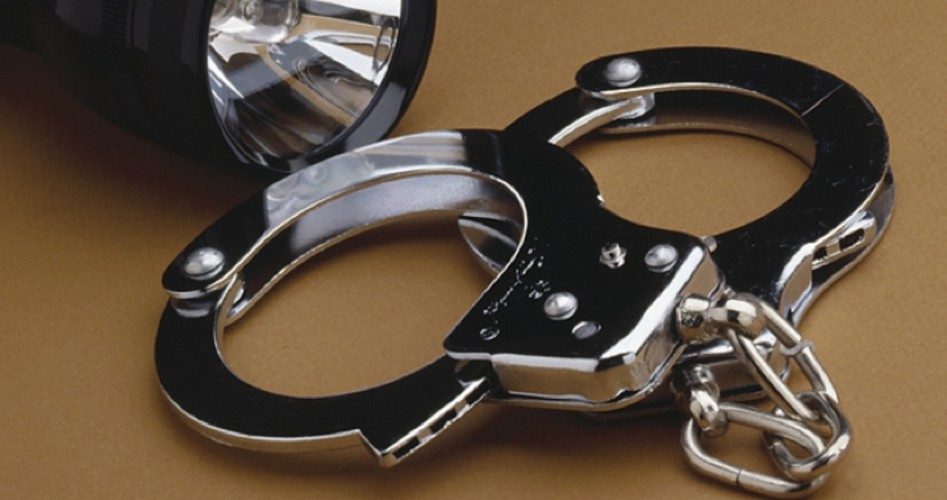
Russian Eurasianist ideologist Aleksandr Dugin is continuing to discover the truth behind the saying, “Ideas have consequences.” For approximately a year, Dugin has been on the list of individuals placed under sanctions by the governments of the United States and Canada because of his alleged advocacy of genocide in Ukraine. This week, however, it appeared that the list of nations sanctioning Dugin was about to significantly expand when he was detained by authorities at the Greek border and initially refused entrance to the European Union. The push for Dugin’s exclusion from the EU came at the request of the government of Hungary.
Several actions taken by Dugin in 2014 are at the root of his troubles. In August 2014, Dugin declared: “Ukraine should be cleared of the idiots. Genocide of the cretins is suggested. The evil cretins are closed to the Voice of the Logos, and deadly with all their incredible stupidity. I do not believe that these are Ukrainians. Ukrainians are beautiful Slavic people. This kind of appeared out of manholes as a bastard race” — a rant that was widely interpreted as a call for genocide in Ukraine, particularly after he had declared in May 2014 that it was the time to “kill, kill, kill. There should be no more talking. As a professor, this is how I think.”
The international controversy that resulted from Dugin’s comments cost him his position as a professor at the influential Moscow State University and eventually led to both the United States and Canada placing Dugin and his Eurasianist Youth Union on the list of individuals and organizations under sanctions. As the U.S. Treasury department declared in a March 2015 press release:
The Eurasian Youth Union has actively recruited individuals with military and combat experience to fight on behalf of the self-proclaimed DPR [Donetsk People’s Republic] and has stated that it has a covert presence in Ukraine. Aleksandr Dugin, Andrey Kovalenko, and Pavel Kanishchev are leaders of the Eurasian Youth Union. This group and its leaders are being designated for being responsible for or complicit in actions or policies that threaten the peace, security, stability, or sovereignty or territorial integrity of Ukraine.
The Canadian government followed with similar sanctions against Dugin in June 2015. (Dugin was one of only three individuals specifically named in the June 2015 round of sanctions.)
As a result of his sanctioned status, Dugin has been unable to travel to the United States or Canada, a situation that he bemoaned in an April 2015 speech via Skype to a handful of students at Texas A&M University in College Station, Texas.
Dugin’s comments in May and August 2014 were not the end of his troubles related to his inflammatory rhetoric. Dugin was scheduled to be the lead speaker at a conference in Budapest, Hungary, in October 2014. However, the conference, billed as the European Congress of the National Policy Institute (NPI), was officially banned by Hungarian Prime Minister Viktor Orban as “an attempt to breathe new life into Nazi and … fascist ideology.” According to the BBC, Dugin “stayed away after allegedly being warned through police channels that he would not be allowed to enter Hungary.” Dugin’s decision to stay home was prudent; Orban ordered the arrest of anyone attempting to proceed with the conference and William Regnery, the found of NPI, was sent back to the United States as soon as he arrived at the Budapest airport; Richard Spencer, the director of NPI, “was arrested in a Budapest pub when he tried to organize a casual gathering of the conference’s attendees.”
According to Radio Free Europe/Radio Liberty, Greek officials told Dugin that he was being refused entry to Greece at the request of the Orban government. However, Dugin “was later allowed into the country after intervention by Russian diplomats.” (This was not the first time that the Putin regime has gone to great lengths for Dugin: When he was formally declared persona non grata in 2006 by the government of Ukraine, Mykola Zhulinsky, an advisor to the Ukrainian president, was barred from entering Russia during a private trip to St. Petersburg as an act of retaliation for the restrictions placed on Dugin’s travel to Ukraine.)
Orban’s apparent antipathy toward Dugin may seem surprising, given Orban’s status as “arguably the most important right-wing leader on the continent”; other rightists, including elements of the National Front Party of Jean-Marie Le Pen, have allegedly been aligned with Dugin. However, Dugin has plans for Hungary that are not dissimilar to those which he dreams of for Ukraine: the dissolution of Hungary into a larger empire. As Dugin proclaimed in January 2015:
Countries of a future “cordon sanitaire” in Eastern Europe are expected to build up their very own Great Eastern Europe exploiting its dual superposition. But even in such an empire, I would not leave room for nationalism. If, say, Hungary, Romania, Serbia, Slovakia, the Volinski oblast and Austria would be one conglomerate, then it would gather all ethnic Hungarians in one state and their ethnic status before the treaty of Trianon would be automatically restored.
As Csaba Toth wrote for The Budapest Beacon:
The Treaty of Trianon (1920) stripped Hungary of two-thirds of its territory and a third of its ethnic Hungarian population, with 5 million ethnic Hungarians becoming citizens of the new countries of Yugoslavia and Czechoslovakia, as well as Austria, Ukraine and a territorially expanded Romania. Trianon and the matter of Hungarians living in the “near abroad” have been sensitive topics for the Hungarian right wing ever since. Dugin effectively proposes to reunite the former crown lands of Hungary in a kind of eastern European super state. Soviet premier Joseph Stalin reportedly made a similar offer to regent of Hungary Miklós Horthy in 1940, which the latter turned down.
Not surprisingly, advocating the destruction of various states in Europe is likely to result in one no longer being welcome in those countries.
In the Ukraine, the Eurasianist ideology and the territorial ambitions of the Putin regime continue to amass casualties. The ongoing conflict in eastern Ukraine between Ukrainian and Russian military and paramilitary forces has resulted in over 9,000 deaths since April 2014. Russia’s aggressive intervention in Ukraine came at the same time that the Russian government was establishing the Eurasian Economic Union, a union that takes important steps toward establishing a successor state to the old Soviet Union in the eventual form of a Eurasian Union. Russia’s annexation of Crimea in early 2014, followed by the establishing in April and May of 2014 of “puppet” states in eastern Ukraine — the Donetsk People’s Republic and Luhansk People’s Republic — have been interpreted by some analysts as important steps toward the eventual inclusion of portions of Ukraine in a Eurasian Union.
The fatalities in eastern Ukraine include at least 2,000 Russian soldiers — a fact that the Putin regime endeavored to suppress, but which became public after a Russian news source — the website Delovaya Zhizn — released the number of families that had received $43,000 in compensation from the Russian government for each family member killed while serving as a soldier in Ukraine. (Delovaya Zhizn quickly removed the story from its website “after Russian authorities threatened to ban the publication for violating the decree over classifying casualties” — a tacit government admission that the number of fatalities was correct.)
The Eurasianist ideology assumes that such violence is necessary for the establishment of a Eurasian Union. As Dugin declared in September 1998, “aggression — is the founding law of existence” and the coming conflict between the West and “Eurasia” is a conflict between “two positions which could not be brought together, two all-encompassing super worldviews, two mutually exclusive projects of the future of mankind. Between them is only enmity, hatred, brutal struggle according to rules and without rules, for extermination, to the last drop of blood. Between them are heaps of corpses, millions of lives, endless centuries of suffering and heroic deeds.”


